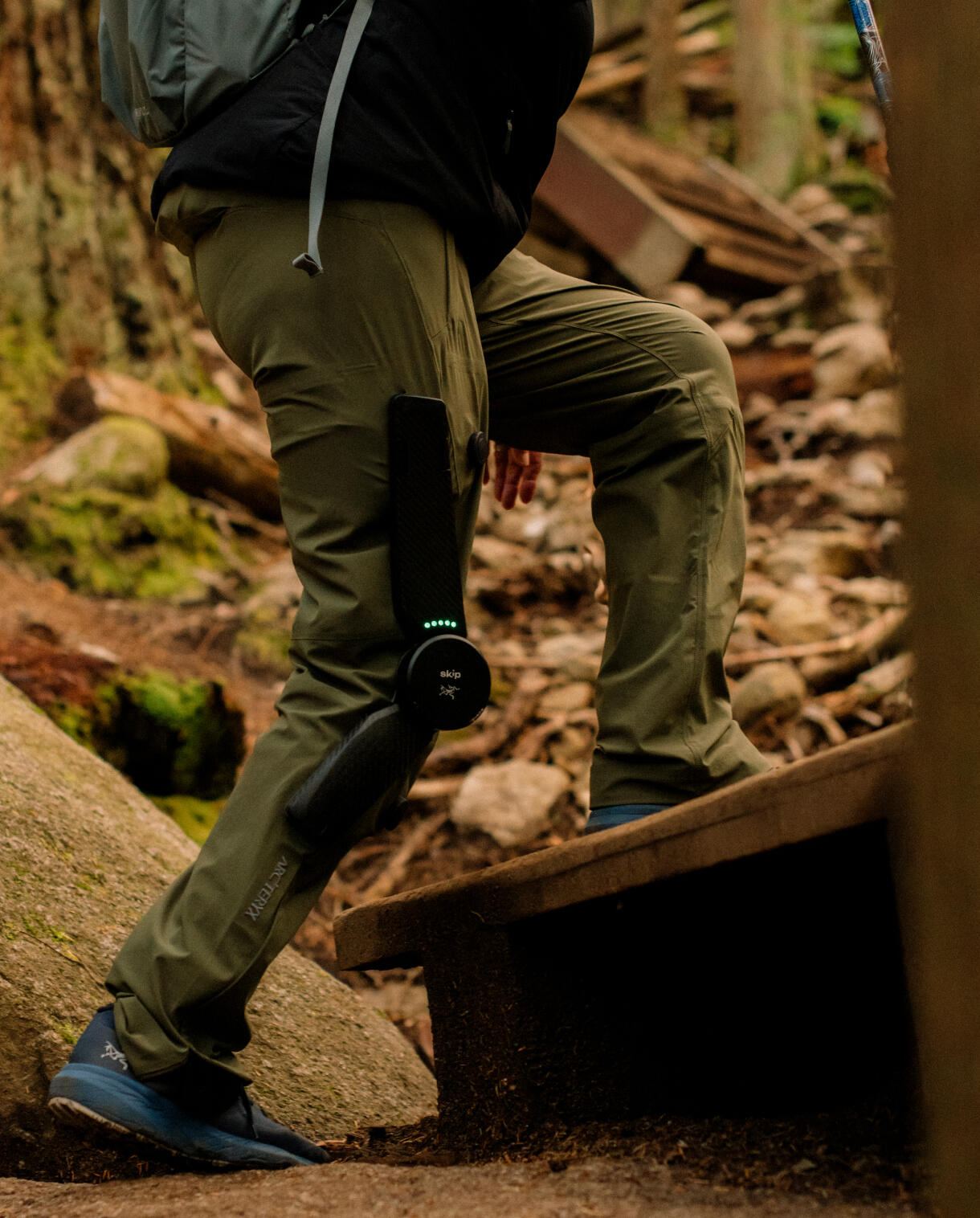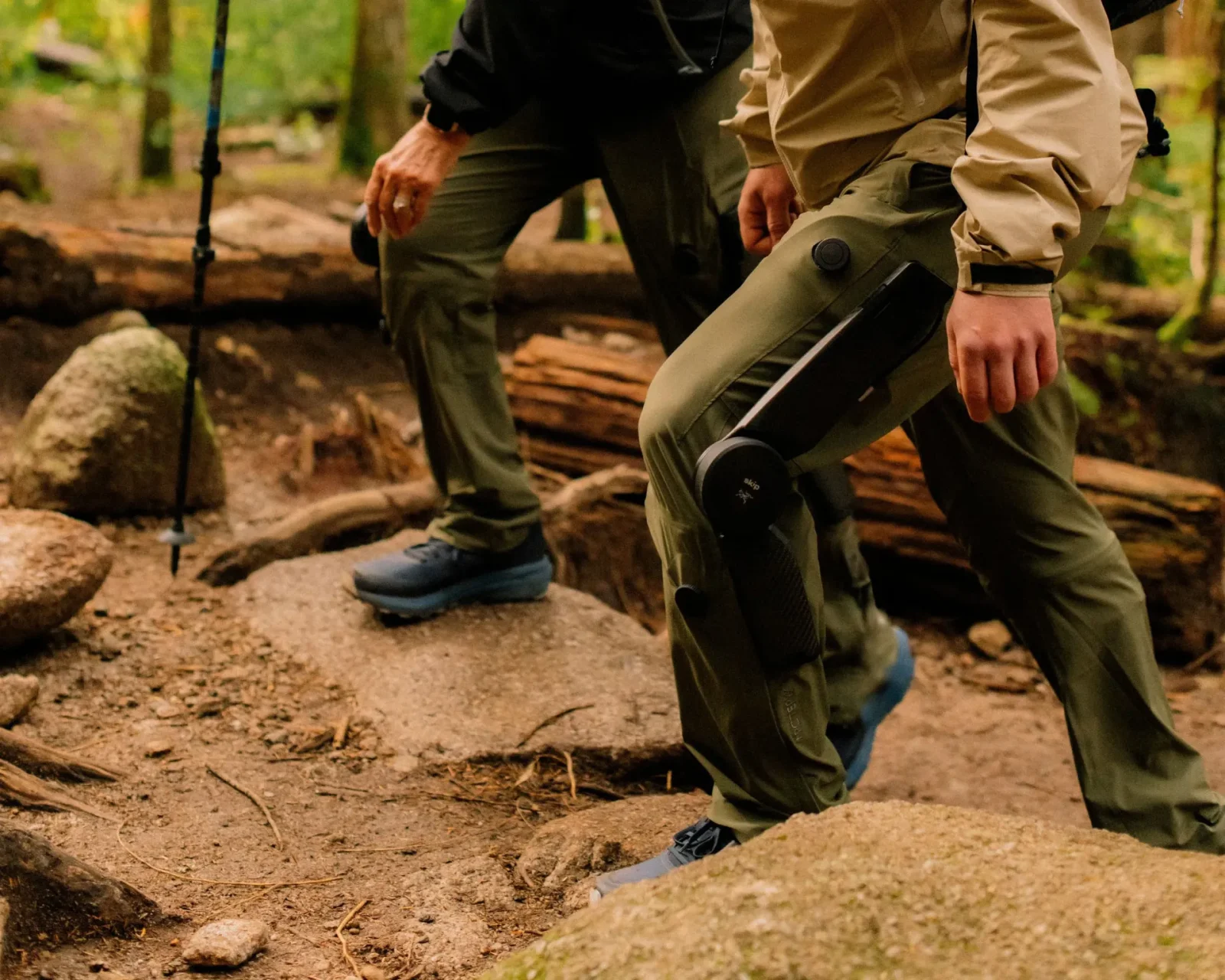Skip, a startup focusing on wearable tech, has officially emerged from stealth mode and announced a partnership with outdoor clothing brand Arc’teryx. The collaboration introduces Skip’s innovative “powered pants,” which integrate a soft exoskeleton technology called MO/GO (short for “mountain goat”).
This technology is designed to enhance mobility by providing a 40% energy boost to the quadriceps and hamstrings, thereby reducing the load on the knees. Reservations for the powered pants are now open, with shipments expected to start later this year. A soft launch is planned for late summer to early fall, with the pants available for rental near popular hiking destinations like the Grand Canyon.
Skip’s technology, initially developed under Alphabet’s X Labs, was first reported by TechCrunch in 2021. However, Alphabet’s restructuring and cost-cutting measures in late 2023 and early 2024, which included significant layoffs, prompted a reevaluation of the project’s future within the company.
As a result, founder and CEO Kathryn Zealand decided to spin out Skip as an independent entity. To facilitate this transition, Zealand engaged with venture capitalists and successfully raised $6 million through funding and grants.

Securing a fashion partner became crucial for Skip as it ventured into the market. Zealand recognized the need for a partner to address the wearability challenges of the technology. Arc’teryx, known for its combination of style and functionality, emerged as the ideal collaborator.
This partnership is pivotal for Skip’s strategy to transform the promising lab prototype into a viable consumer product. The practical applications of MO/GO were demonstrated through anecdotes like that of a woman who managed to climb stairs for the first time in 25 years using the technology.
Initially, Skip explored various clothing partnerships before finalizing Arc’teryx. The collaboration with the Vancouver-based company, which produces both apparel and hard goods, aligns perfectly with Skip’s goals. The initial hiking rentals will collect anonymous data to test MO/GO in real-world conditions, with the ultimate aim of making the technology suitable for everyday use.
However, the high launch price of $4,500 might limit its accessibility to those without significant mobility issues. Skip is also conducting clinical trials to evaluate the system’s potential in aiding conditions like Parkinson’s disease.
In the long term, Skip hopes to classify its technology as a medical device, though this is expected to take several years. In the interim, the company is exploring options like FSA coverage to reduce costs for users. Scaling up manufacturing is also anticipated to lower the price over time.
Alphabet’s approach to spinning out projects from X Labs varies, with some receiving substantial foundational support while others, like Skip, are encouraged to become independent. This model is likely to become more common as Alphabet continues to reduce resources for smaller projects.







Leave a Reply